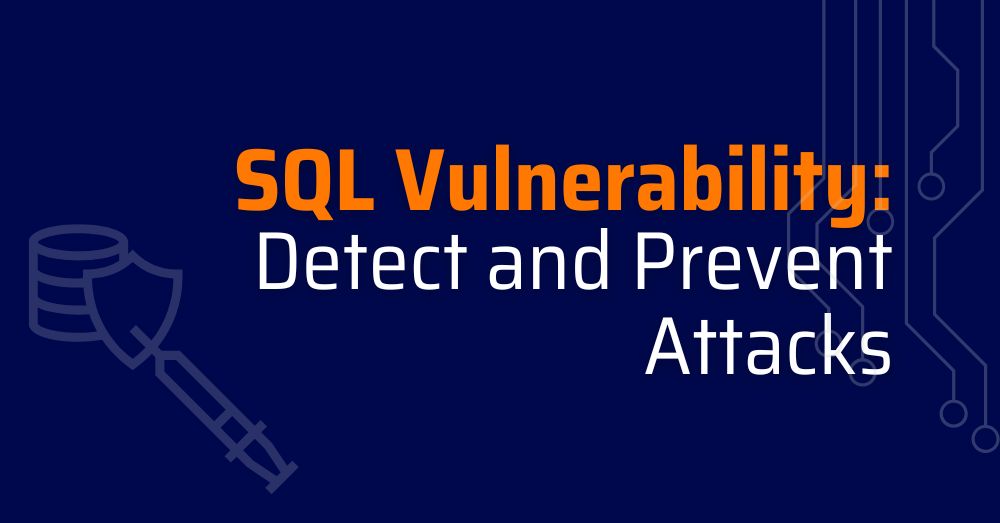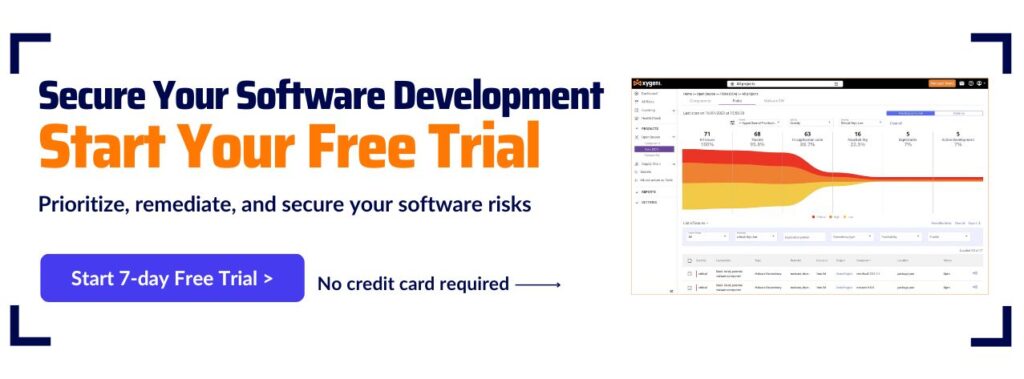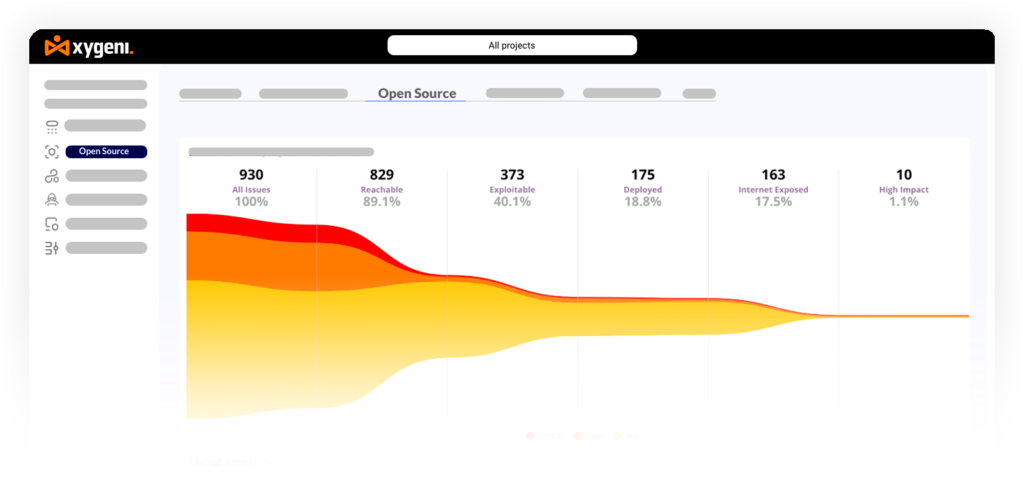SQL vulnerability, especially the well-known SQL injection vulnerability, remains one of the most critical risks in modern applications. Even with better frameworks and tools, attackers still exploit insecure queries to steal data or escalate privileges. While a typical SQL injection vulnerability scanner can help, DevSecOps teams need more than detection. They need automated ways to prevent, prioritize, and remediate these risks without slowing down delivery.
What Is an SQL Injection Vulnerability?
An SQL injection vulnerability happens when user input is passed into a query without proper validation or parameterization. Attackers can inject their own commands into the database, exposing sensitive data or even taking control of the application.
⚠️ Warning: The following example shows unsafe code. Do not use this pattern in production.
// vulnerable code
$user = $_GET['username'];
$query = "SELECT * FROM users WHERE username = '$user'";
$result = mysqli_query($conn, $query);
If an attacker submits admin' OR '1'='1, the query returns all users instead of one.
Key risks:
- Exfiltration of entire tables
- Manipulation of application logic
- Gaining higher privileges and maintaining access
Why SQL Vulnerabilities Are Still So Dangerous
Despite years of awareness, SQL vulnerability keeps appearing in new CVEs every month. They remain high on the OWASP Top 10 because:
- Many apps still rely on legacy code.
- Developers often skip proper input checks.
- Attackers can run automated scans across thousands of sites.
Even worse, quick fixes don’t always work. For example, filters like StripChar often fail to block real injection attempts, as shown in Why StripChar Didn’t Block That Injection Attack.
Major breaches have exposed millions of customer records through a single overlooked SQL vulnerability. The average cost of a breach in 2024 reached $4.88M, with SQL injection still a major driver.
Real-World SQL Injection Incidents
SQL injection vulnerability is not just theory. Some of the most famous breaches in history came from this single vulnerability:
- Heartland Payment Systems (2008): Attackers exploited SQL injection to access payment systems, leading to one of the largest credit card breaches in history.
- TalkTalk (2015): A major UK telecom provider was breached through SQL injection on a public-facing site, exposing customer data and resulting in millions in fines.
- RockYou (2009): An SQL injection flaw exposed credentials and data of millions of social app users, a case that showed how a simple vector can scale massively.
These examples show that a single SQL vulnerability can expose millions of records and damage reputation permanently.
Key Benefits
- Detect SQL injection vulnerabilities early
- Reduce noise with risk-based prioritization
- Automate fixes with AI-generated pull requests
- Prevent insecure code from reaching production
Detecting Insecure Queries with Scanners
A common step is to run a SQL injection vulnerability scanner. In fact, these tools (SAST, DAST, or open source) simulate injection attempts or analyze code patterns.
However, traditional scanners come with several limitations:
- Too many false positives
- Lack of context (is the vulnerability really exploitable?)
- No guidance on remediation
Therefore, modern teams need more than a scanner. Moreover, they need continuous protection built directly into their pipelines.
Xygeni SQL Injection Vulnerability Scanner
Xygeni’s SQL injection vulnerability scanner goes far beyond simple pattern matching. Accordingly, it is a multi-layered engine that finds, prioritizes, and helps fix SQL injection issues directly in your DevSecOps workflows.
Deep Static Analysis (SAST)
The Xygeni scanner performs in-depth static analysis from the first commit, catching query concatenation, unsafe parameters, and tainted input flows.
Reachability and Risk-Based Prioritization
Not every detected issue is exploitable. As a result, Xygeni correlates findings with reachability analysis and exploitability metrics like EPSS. This reduces noise and highlights only the SQL injection vulnerabilities that really matter.
Low False Positives
Furthermore, by combining OWASP benchmarks with contextual rules, the scanner significantly reduces false positives compared to traditional tools.
AI AutoFix Remediation
When vulnerabilities are detected, Xygeni can automatically generate a pull request with suggested fixes. For example, in SQL injection cases this often means replacing unsafe queries with prepared statements or parameterized queries, with testing hints included.
CI/CD Guardrails
The scanner integrates into CI/CD pipelines as a policy gate. Consequently, builds can be blocked if critical SQL vulnerabilities are present, preventing unsafe code from shipping.
IDE Integration
Findings show up directly in developer environments such as VS Code. Moreover, engineers get contextual explanations and PR-ready fixes before merging insecure code.
Full-Stack Context
Finally, the scanner correlates results with SCA, IaC, and secrets scanning. This way, it reveals combined attack vectors, such as malicious dependencies introducing unsafe query flows.
Safe fix example (PHP):
// safe fix using prepared statements
$stmt = $conn->prepare("SELECT * FROM users WHERE username = ?");
$stmt->bind_param("s", $_GET['username']);
$stmt->execute();
$result = $stmt->get_result();Xygeni AutoFix can generate similar pull requests automatically, suggesting prepared statements and unit tests.
Moreover, when you use secure practices together with Xygeni’s platform, SQL vulnerabilities can be found early, ranked clearly, and fixed automatically.
Conclusion: SQL Injection Defense in the Age of DevSecOps
SQL injection vulnerabilities remain one of the most common ways attackers break into applications. In fact, every SQL vulnerability can put sensitive data at risk if not addressed quickly. Traditional SQL injection vulnerability scanners are useful, but not enough on their own. Therefore, teams need a platform that offers detection, clear prioritization, and automated fixes.
This is where Xygeni helps. By adding deep SAST, guardrails, and AI AutoFix into your pipelines, Xygeni makes sure SQL vulnerabilities never reach production. As a result, security becomes easier and more reliable.
Start your free trial today and see how Xygeni helps DevSecOps teams stop SQL injection vulnerabilities at scale.
Open Source Vulnerability Scanner Guide
Find risks in your dependencies and learn how to stop malicious packages before they reach production.









